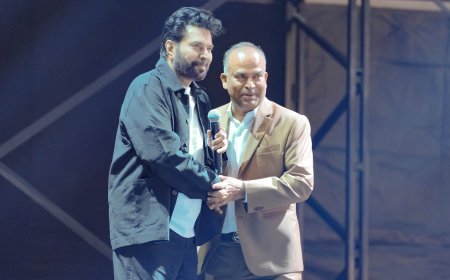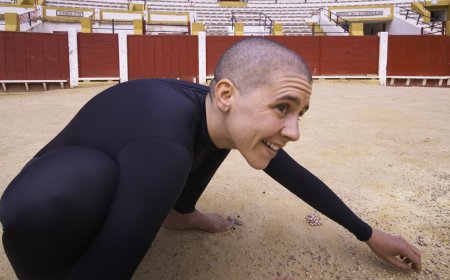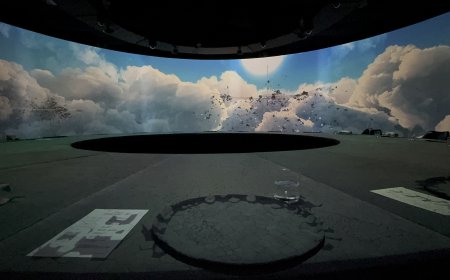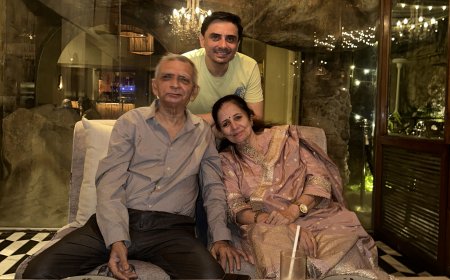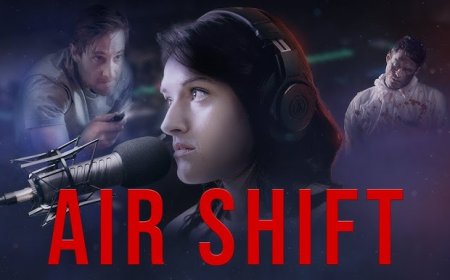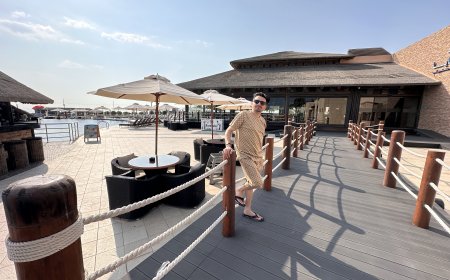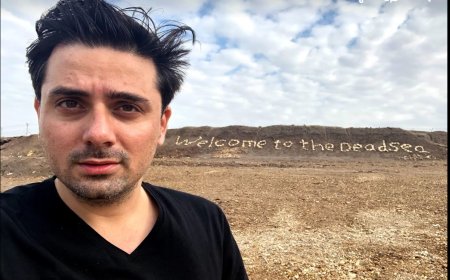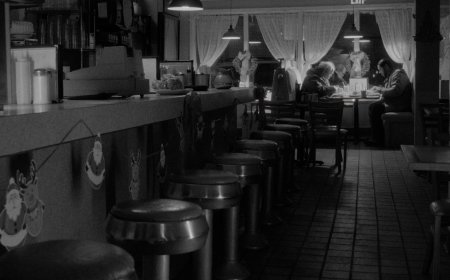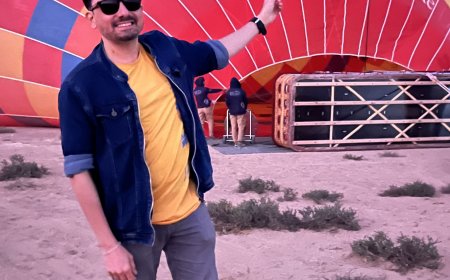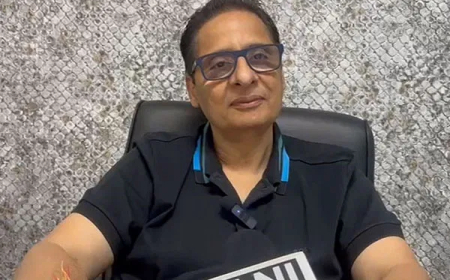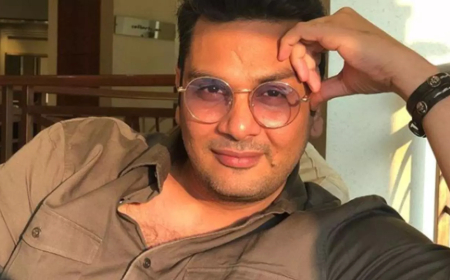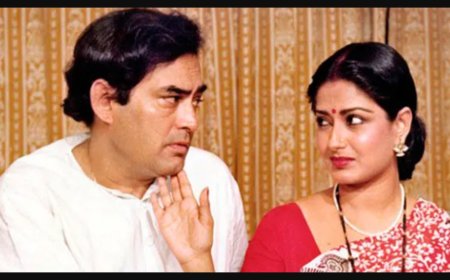A Review of ‘The American Question’: A stirring documentary seeking answers to the conflict behind U.S. politics
A political analyst traverses three U.S. cities that are in flux to get to the root of America’s severe political divide.

‘The American Question’: A stirring documentary seeking answers to the conflict behind U.S. politics.
Cast: Amy Chua, Guy Seemann, Ange-Marie Hancock Alfaro, Colin Woodard, Peter Levine, Yuval Levine, Yascha Mounk, Joseph Orengia, Roland Slade, Kyle McChesney, David Azerrad, Pranjal Satija, John Keegan, Garrett Kost, Carol Graham, Annie Mendez, Elaine Maddon Curry, Sam, Karen Teegarden, Isabel Sawhill, Erinn Reed, Tim Gibson, Tania Israel, Rosanna Gabriel
Critic’s Rating: 4 Stars out of 5
Director: James Kicklighter
Duration: 1 hour, 30 minutes
Genre: Documentary
Language: English, Arabic (with subtitles)
Release: 2024
What’s it about?
A political analyst traverses three U.S. cities that are in flux to get to the root of America’s severe political divide.
Review:
At a time when the U.S.A. is the grips of political polarisation, growing social discord and bitter election campaigns, along comes this pertinent documentary which attempts to investigate the core reasons for such. Desperately seeking answers to the decaying state of the world’s only remaining superpower, American-Israeli political analyst Guy Seemann and director James Kicklighter document 8 years of intense research. In the process, these curious filmmakers turn the camera and microphone onto about two dozen respondents. These articulate, well-informed and passionate interviewees range from accomplished academics, to non-fiction authors, to political organisers, to community workers, to ordinary American citizens of varying descent. Their views and opinions make for a compelling study of an imperilled country caught in a downward spiral.

Setting the tone for this celluloid outing is Law Professor Amy Chua, who likens the U.S. to the Mongal Empire where noble cohesion went on to lose its adhesiveness. Hinting at this phenomenon, we see archival footage of foreboding speeches by several American Presidents, before Seemann introduces himself and his motivation behind making this film. Beginning with Donald Trump’s shock victory in 2016 of the country’s highest office, Seemann travels with his crew to three cities - Eerie and Hazleton in Pennsylvania, and Detroit in Michigan. Seemann and his team recognise that these places are emblematic of the key issues plaguing America. Along the way, Seeman questions the intellectual and the lay man regarding the values that made America great. While USC Chair Ange –Marie Hancock Alfaro indicates that these are at odds with the reality today, journalist/author Colin Woodard posits that the (Coastal) elite no longer relates to the small-towners and vice versa. Seemann surmises that Globalisation has only deepened the divide.

In Eerie, Seemann chats with resident and Trump-supporter Joe Orenga who insists that the welfare system is inherently unfair; and with Roland Slade and Kyle McChensney, who are disenchanted with the electoral process and the inactivity of politicians. This, while senior fellow/author Yuval Levin says the Baby Boomer generation, that are now at the country’s helm, are stuck in the past. Associate Prof. David Azerrad adds that instead of forging civic ties, the powers-that-are are underscoring ethnic, religious and cultural differences.

Seemann next moves to Hazleton which has witnessed a demographic transformation with a huge influx of Hispanics. These people, high school student Garrett Kost claims, are living off the dole while most Caucasian residents work for survival. Meanwhile, Elaine Maddon Curry of the town’s ‘Integration Project’ insists that the ‘newcomer’ is being scapegoated for the town’s ills. Also, pharmacist John Keegan tries to put the contentious Immigration issue into perspective. At the same time, Chau states that the split in America’s White population – due to Class and Education – is tantamount to an “ethnic divide”.

Seemann’s final stop is in Detroit, a once thriving hub which is in severe decline. Still, Iraqi immigrant Sam finds the place warm and welcoming to the outsider. This, while the well-travelled political organiser Karen Teegarden, is trying hard to reach out to her political adversaries within her Unitewomen outfit. Teegarden also points out that previously, Americans with a high school diploma and a blue-collar job enjoyed stability and respect, which is no longer the case. Seemann next approaches African American entrepreneurs - Erinn Reed and Tim Gibson - that are striving to integrate tech and business into local education to benefit the poor, but are bereft of necessary political support.

The last third of the film focuses on COVID times and how it exacerbated the animosity and disunity in the country with growing fear and a trust deficit. Seeman is dismayed to discover this regression on revisiting his respondents in the three cities. However, some positive developments in community-fostering seem to have unfolded in Hazleton. Meanwhile, Chua suggests the instituting of a “national service programme”, where those from wealthy Coastal origins dedicate time to neglected towns. Also, Psychology Prof. Tania Israel proposes a productive change in the mode of listening and responding in order to enhance healthy political discourse. To wrap up this comprehensive documentary, Seemann lays out a practical to-do list for all residents to try and follow. This unique exercise includes understanding where political opponents are coming from, to finding common ground, to avoiding prejudice.

The American Question does just that: puts forward queries and tries to garner honest answers. Meanwhile sumptuous visuals serve as a breather between sound-bytes, while the editing seamlessly interweaves image, word and music - for a well-textured result. Though the narrative digresses at times and information is occasionally repeated, the content and themes are adequately explored with interludes of Seemann’s voice-over serving as fitting segues. Another plus is the intercutting of Seemann and his interviewees to show statement and reaction. It’s clear that Seemann, Kicklighter and their co-writer Lucy Copp succeed as story-tellers while evoking profound comments and highlighting the issues burdening America. If you’re looking for the right answers, you needn’t look beyond The American Question.





